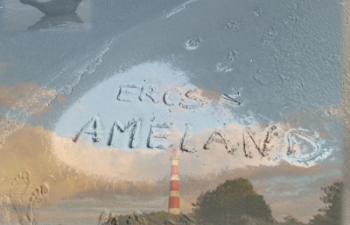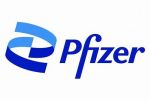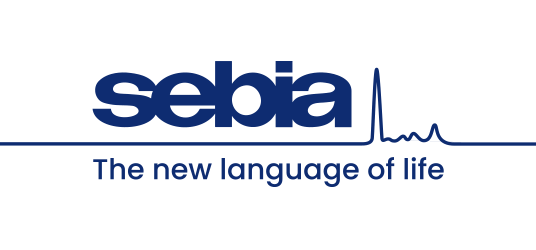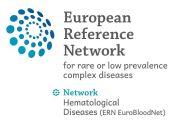On this page you will find the program of the 25th Meeting of the European Red Cell Society that DOEN congresses and events has organized. If you would like to have more information about the meeting or to know more about what we can do for you, please contact us via info@doencongressen.nl or call +31 (0)6 25025898 We are happy to assist you and to answer any question you may have.
program
the 25th Meeting of the European Red Cell Society
From April 19-23, 2024 we have organized the 25th meeting of the European Red Cell Society. The meeting was held at Hotel Noordsee, Ameland, the Netherlands.
This biannual International meeting attracts leading experts in the fields of erythropoiesis, red blood cell physiology and function, and red blood cell related disorders. It is an event that brings together 100+ people from Europe and beyond, and connects the fields of research, diagnostics and clinical implications. The target audience are researchers (basic and translational), laboratory specialists, hematologists, and PhD students.

Organizing committee
The content of this 4 day course is the responsibility of the organizing committee, consisting of:
-
Dr. Emile van den Akker, dr. Robin van Bruggen, and dr. Marieke von Lindern (Sanquin, Amsterdam, The Netherlands)
-
Dr. Kees Harteveld (Leiden University Medical Center, Leiden, The Netherlands)
-
Dr. Marije Bartels, dr. Minke Rab, dr. Richard van Wijk (University Medical Center Utrecht, Utrecht, The Netherlands)
-
15:00 – 16:00
Outward journey Holwerd-Nes
-
16:45 – 17:30
-
Check-in hotel
-
-
18:30 – 19:30
Cell cycle structure and speed in erythroid development and the response to erythroid stress
Merav Socolovsky, Professor UMASS Chan Medical School, United States -
19:30 – 21:30
Buffet dinner
-
07:30 – 08:45
Breakfast
Scientific session 1 – Erythropoiesies
Chairs: Wassim el Nemer / Catarina Freire
-
09:00 – 09:30
Erythromyeloblastic Islands
Lionel Blanc, Northwell, United States -
09:30 – 09:45
Anemia links β-catenin with FOXO3 signaling during erythroid terminal differentiation
Santhe van der Meulen, Sanquin, the Netherlands -
09:45 – 10:00
In vitro culture of erythroblasts (EBL) and production of mature erythrocytes for transfusions requires upscaling in fluidic-turbulent systems
Giulia Iacono, Sanquin, the Netherlands -
10:00 – 10:15
The Role of the Zcchc6/Dis3L2 RNA Editor-Exonuclease Axis in Terminal Erythroid Differentiation
Areum Han, Harvard Medical school / Boston’s Children Hospital, United States -
10:15 – 10:30
Transfusion-ready red blood cell generation from induced pluripoten stem cells (iPSCs)
Emile van den Akker, Sanquin, the Netherlands -
10:30 – 10:45
Detailed characterization of iPSC-derived hematopoiesis and erythropoiesis en self-organized cellular complexes (hemanoids)
Isabel Dorn, Medical University Graz, Austria
-
10:45 – 11:15
Coffee break
Scientific session 2 – Ion channels of the red blood cell – function and disorders
Chairs: Giampaolo Minetti / Silvia Neri
-
11:15 – 11:45
Defects of RBC cell volume regulation and hydration state: their pathophysiology and diagnosis
Paola Bianchi, Fondazione IRCCS Ca’ Granda Policlinico Milan, Italy -
11:45 – 12:00
Electrophysiological characterization of red blood cells using the automated patch clamp
Nicoletta Muarciano, Nanion Technologies, Germany -
12:00 – 12:15
Role of Piezo 1 in terminal density reversal of healthy red blood cells
Kuntal Dey, University of Zurich, Switserland -
12:15 – 12:30
Red Blood Cell Protein contribution to Malaria Parasite Invasion. Basigin mediation of Plasmodium falciparum red blood cell invasion does not require its transmembrane domain or interaction with monocarboxylate transporter
Timothy Satchwell, University Bristol, UK
-
12:30
Lunch
-
Networking session
-
Poster presentations – titles and authors can be found below this program
-
‘Meet the expert’ session with Ingolf Bernhardt
Unsolved problems in red cell research
Ingolf Bernhardt, University Saarland, Germany
Scientific session 3 – Red blood cell membrane and associated disorders & 4. Clinical hematology – new treatments in sickle cell disease and other hereditary red blood cell disorders
Chairs: Stephane Egee / Min Qiao
Red blood cell membrane and associated disorders
-
16:00 – 16:30
Membranopathies : from cytology and red cell/reticulocyte indices to molecular diagnosis, including prenatal diagnosis
Lydie da Costa, University Paris, France -
16:30 – 16:45
Developmental changes in membrane lipid composition during terminal maturation of circulating human reticulocytes and ageing of red cells
Giampaolo Minetti, University of Pavia, Italy -
16:45 – 17:00
Modulation of terminal erythropoiesis by a TSPO ligand
Alice Dussouchaud, Inserm, France -
17:00 – 17:15
Complete absence of GLUT1 does not impair human terminal erythroid differentiation
Catarina Freire, University of Bristol, United Kingdom -
17:15 – 17:30
Dual action of Dooku1 on PIEZO1 channel in human red blood cells
Guillaume Bouyer, CNRS, France
Clinical hematology – new treatments in sickle cell disease and other hereditary red blood cell disorders
-
17:30 – 17:45
Single center report of hemoglobinopathy free survival after pediatric hematopoietic stem cell transplantation
Gertjan Lugthart, pediatrician, LUMC, Leiden, the Netherlands
-
18:45 – 22:00
Dinner
-
07:30 – 08:45
-
Breakfast
-
Scientific session 4 – Clinical hematology – new treatments in sickle cell disease and other hereditary red blood cell disorders
Chairs: Sjaak Philipsen / Marissa Traets
-
09:00 – 09:30
Curative approaches for patients with sickle cell disease
Erfan Nur, Amsterdam UMC, the Netherlands -
09:30 – 09:45
Genetic reversal of the globin switch concurrently modulates both fetal and sickle hemoglobin and reduces red cell sickling
Nicolas Hebert, Etablissement Francais Du Sand, France -
09:45 – 10:00
Metabolic blood profile and response to treatment with the pyruvate kinase activator mitapivat in patients with sickle cell disease
Myrthe van Dijk, UMC Utrecht, the Netherlands -
10:00 – 10:15
Plasma Proteome Profiling of Sickle Cell Patients Reveals Activation of Inflammatory Pathways During Steady State and Vaso-occlusive Crisis
Lydian de Ligt, Amsterdam UMC, the Netherlands -
10:15 – 10:30
Red cell rheology and blood viscosity in individuals with sickle cell disease following allogenic bone marrow transplantation or autologous gene addition therapy
Vivien Sheehan, Emory University of Medicine, United States -
10:30 – 10:45
A novel allosteric activator of pyruvate kinase enhances human and mouse enzymatic activity and leads to ematological improvements in sickle cell disease mouse models
Carsten Alt, Pfizer
-
10:45 – 11:15
Coffee break
Scientific session 5 – Disorders of Erythropoiesies
Chairs: Tim Satchwell / Carolina Hernandez
-
11:15 – 11:45
Patient-specific cell lines to study erythropoiesis and hemoglobin switching
Sjaak Philipsen, Erasmus MC Rotterdam, the Netherlands -
11:45 – 12:00
Ineffective erythropoiesis negatively impacts the erythroblastic island in sickle cell disease
Wassim El Nemer, EFS Sante, France -
12:00 – 12:15
Anemia in aged mice is accompanied by reduced erythroid lineage cell production and increased red blood cell life span
Carsten Alt, Pfizer, United States -
12:15 – 12:30
Development of a beta-thalassemia rat model for bone marrow characterization after stem cell transplantation
Karolin Roemhild, Sanquin, the Netherlands -
12:30 – 12:45
Elucidating glucocorticoid-responsiveness in Diamond-Blackfan anemia syndrome using iPSC-derived erythroblasts
Teun Slijkerman, Sanquin, the Netherlands
Sponsored session
-
12:45 – 13:00
Lorrca Developments
Presentation by Pim Brandjes, RR Mechatronics -
13:00 – 13:15
RoxyScan: a novel method to evaluate red blood cell resilience to oxidative stress exposure in Sickle Cell disease
Carolina Hernandez, University Medical Center Utrecht, The Netherlands -
13:15 – 13:30
Getinge
-
13:30 – 14:15
Lunch
-
14:30 – 18:00
Network session
-
19:00 – 22:00
Dinner
-
07:30 – 08:45
-
Breakfast
-
Scientific session 6 – New developments for red cell research and diagnostics
Chairs: Paola Bianchi / Jonathan de Wilde
-
09:00 – 09:30
Probing red blood cells’s bio-mechanical properties
Lars Kaestner, University of Saarland, Germany -
09:30 – 09:45
An Efficient and Specific Reporter System Suitable for High-Throughput Screening of Novel Fetal Hemoglobin Inducers
Tingyue Li, ErasmusMC, Rotterdam, the Netherlands -
09:45 – 10:00
Pyruvate Kinase Thermostability Is Associated with Red Blood Cell Adhesion, Deformability and Oxygen Affinity in Patients with Sickle Cell Disease
Marissa Traets, UMC Utrecht, the Netherlands -
10:00 – 10:15
Towards quantification of intracellular free calcium in individual red blood cells by fluorescence lifetime imaging microscopy
Min Qiao, Saarland University, Germany -
10:15 – 10:30
Ex vivo glycolytic flux measurements in red blood cells
Titine Ruiter, UMC Utrecht, the Netherlands -
10:30 – 10:45
Hepatic Leukemia Factor as a marker for iPSC – derived Hematopoietic Stem Cells
Maria Simanovich, Erasmus MC Rotterdam, the Netherlands
-
10:45 – 11:15
Coffee break
Scientific session 7 – New developments for red cell research and diagnostics & 6. New developments for red cell research and diagnostics
Chairs: Lars Kaestner / Giulia Iacono
Clinical cases
-
11:15 – 11:45
SUPT5H nonsense variants as modifying factor in beta-thalassemia trait
Kees Harteveld, Leiden University MC, The Netherlands
New developments for red cell research and diagnostics
-
11:45 – 12:00
An AI-based imaging flow cytometry approach to study erythrophagocytosis
Silvia Neri, Sanquin, the Netherlands -
12:00 – 12:15
Endothelialized 3D perfusion model to study ex vivo reticulocyte-to-erythrocyte transition
Claudia Maria Bernecker, University of Graz, Austria -
12:15 – 12:30
Actomyosin-driven expulsion of hemoglobin during hemolysis,
Tessa Korsa, Fraunhofer IBMT, Sulzbach, Germany -
12:30 – 12:45
Red cell function devices under development for use in sickle cell disease
Vivien Sheehan, Emory University School of Medicine, Atlanta, United States
-
12:45 – 13:45
Lunch
Scientific session 8 – Clinical hematology – new diagnostic approaches & 2. Ion Channels
Chairs: Vivian Sheehan / Myrthe van Dijk
-
13:45 – 14:15
Biomarkers in sickle cell disease
Minke Rab, UMC Utrecht, The Netherlands -
14:15 – 14:30
Novel direct plasma heme-related assay decyphers hemolytic anemia and ineffective erythropoiesis
Nicolas Hebert, Etablissement Francais Du Sang IDF, France -
14:30 – 14:45
Impact of Sickle Cell Disease Patients-Derived Red Blood Cells on Clot Dynamics and Fibrin Structure
Naoual Ouazzani Chahdi, Sanquin, the Netherlands -
14:45 – 15:00
Low Voxelotor Concentrations Exacerbate Sickle Cell Formation At Low Oxygen Pressure
Emile van den Akker, Sanquin, the Netherlands -
15:00 – 15:15
Soluble Transferrin Receptor as a Marker for Assessing Disease Severity in Hereditary Hemolytic Anemias
Geoffrey Kuppens, UMC Utrecht, the Netherlands
Presented by Marije Bartels, UMC Utrecht, the Netherlands -
15:15 – 15:30
Autoimmune hemolytic anemia anti-RBC IgM, but not IgG, drive in vitro complement activation
Femke Mulder, Sanquin, the Netherlands
Ion Channels
-
15:30 – 15:45
Ion channels of the red blood cell:
Effects of Pyruvate Kinase Activation in Hereditary Hemolytic Anemia
Jonathan de Wilde, UMC Utrecht, the Netherlands
-
15:45 – 16:15
Coffee break, followed by sessions:
-
15:45 – 16:45
Poster presentations – titles and authors can be found under this program
-
15:45 – 17:00
Steering Committee meeting on the consensus-based Recommendation for the Diagnosis of Rare Hemolytic Anemia
Sponsored by EuroBloodNet -
17:00 – 17:45
ERCS General Assembly meeting
-
18:30 – 21:30
Dinner
-
07:00 – 08:00
Breakfast and checkout, payment of expenses (bar)
-
08:30
Departure from hotel by bus to harbor
-
09:00
Departure by ferry ‘Brakzand’ to mainland
Posters, format A0, portrait
-
Pseudo Action Potentials (PAPs) in red blood cells – an approach of understanding
Lars Kaestner, University of Saarland, Germany -
Anemia in aged mice is accompanied by reduced erythroid lineage cell production and increased red blood cell life span
Carsten Alt, Pfizer -
A novel allosteric activator of pyruvate kinase enhances human and mouse enzymatic activity and leads to hematological improvements in sickle cell disease mouse models
Carsten Alt, Pfizer -
Can the emergence of cation channel activity during storage threaten the survival of transfused red blood cells?
Stephane Egee, CNRS, France -
Cell Therapy Scale-up: Bioprocess Development for the Production of Hematopoietic Cells
Brenda Juarez Garza, Delft University, the Netherlands -
The quality of red blood cells isolated from cord blood during storage
Joyce Bestebroer, Sanquin, the Netherlands -
Variability of extracellular particle content in red blood cell concentrates upon storage is associated with differential membrane alterations and could be used as quality control
Donatienne Tyteca, UC Louvain, Belgium -
Hemoglobin as a multifunctional sensor and buffer
Anna Bogdanova, University of Zurich, Switzerland -
Scale-up of stem cell cultures from shake flask to bioreactor: a CFD-based comparison of hydrodynamic stress
Ramon van Valderen, Delft University, the Netherlands -
Towards an improved erythroid production from IPSC
Marien van der Stel, Sanquin, the Netherlands -
Investigating the Role of Shear Stress on Endothelial-to-Hematopoietic Transitioning
Oyishee Ahmad, Sanquin, the Netherlands -
A clinical mechanical marker of red blood cell deformability: sickle cell disease example
Cecile Jebane, CNRS-CINam, Marseille, France -
RBC delivered antigens for the induction of antigen specific immune tolerance,
Youmna Al Halabi, Sanquin, the Netherlands
This conference is sponsored by







